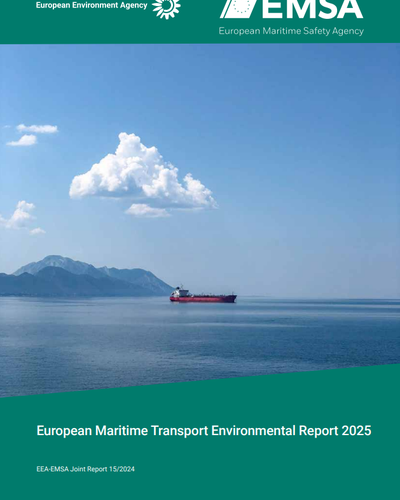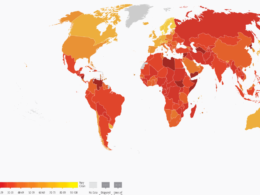The European Maritime Transport Environmental Report 2025, released by the European Maritime Safety Agency (EMSA) and the European Environment Agency (EEA), indicates that while the maritime sector is making strides towards sustainability, further efforts are needed to meet EU climate and environmental targets.
Maritime transport remains a key driver of trade, economic growth, and energy security, yet its environmental impact is significant. The sector accounts for 3-4% of the EU’s total CO₂ emissions, with methane (CH₄) emissions more than doubling between 2018 and 2023, reaching 26% of the sector’s total methane output in 2022. Meanwhile, NOx emissions increased by 10% from 2015 to 2023, despite a 70% drop in SOx emissions following stricter regulations.
The report highlights persistent challenges, including water pollution from oil spills, wastewater discharges, and marine litter, as well as rising underwater noise levels in high-traffic areas. While marine litter from fisheries and shipping has halved over the past decade, plastic pellet pollution from lost containers remains a concern. Additionally, 27% of Europe’s near-shore seabed is affected by port expansions, dredging, and anchoring, leading to habitat loss.
The shift to alternative fuels is increasing, but production must scale up significantly to meet demand. The report stresses the need for harmonised international guidelines and training for seafarers in decarbonisation technologies.
New EU regulations are expected to accelerate the transition. The EU Emissions Trading System (ETS) was extended to maritime transport in 2024, introducing a carbon pricing mechanism for shipping emissions. Revenue from the ETS will support low-carbon technologies through the Innovation Fund, which has already financed over 300 shipping-related projects. From January 2025, the FuelEU Maritime Regulation will impose GHG intensity limits on energy used onboard ships, aligning with international efforts to curb emissions.
Policymakers emphasise that further innovation and investment are needed to meet the European Green Deal’s climate targets while preserving the sector’s competitiveness. EU Commissioner for Environment Jessika Roswall highlighted the urgency of a “source to sea” approach to improve water resilience, while EMSA’s Maja Markovčić Kostelac stressed the role of digitalisation and advanced technology in achieving a greener maritime industry.
With rising regulatory pressures and increasing calls for corporate accountability, the maritime sector faces a critical juncture in its transition towards sustainability and emissions reduction.




















